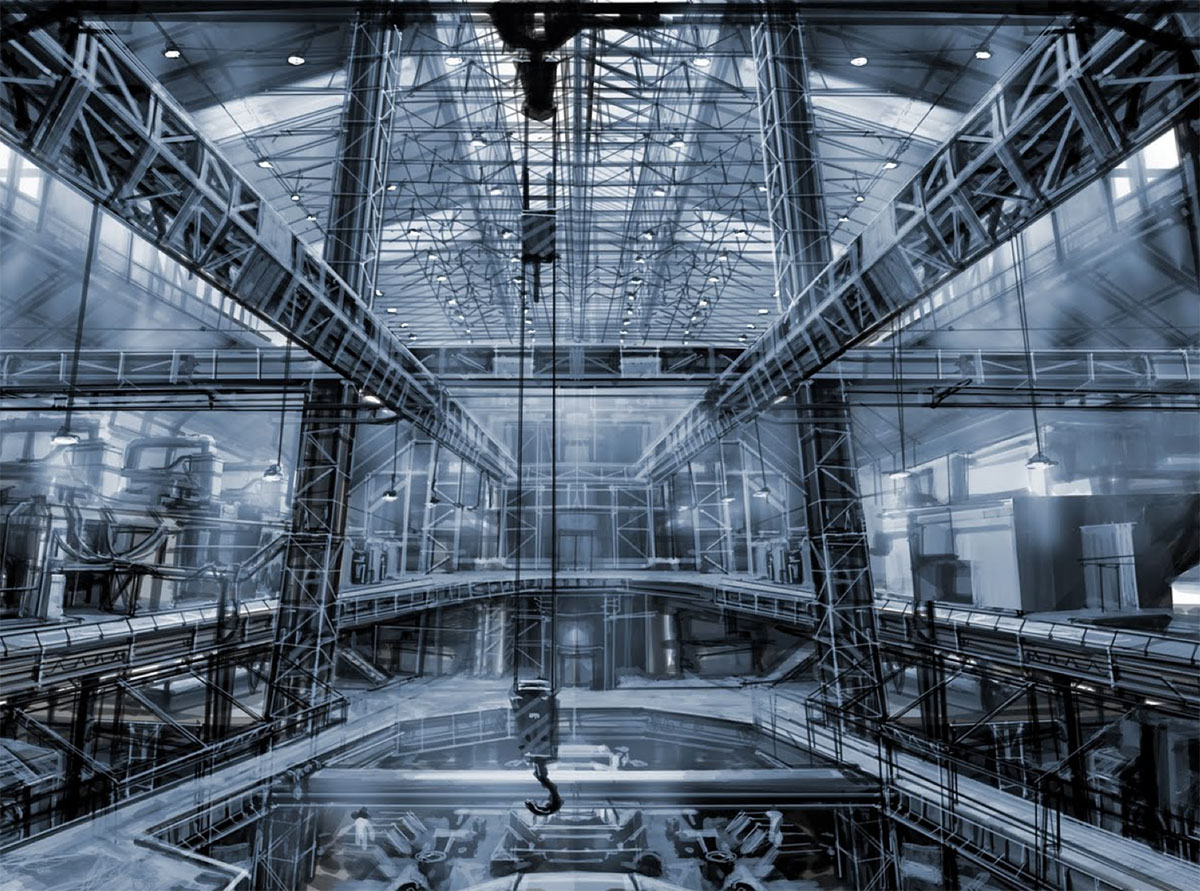VIDEO TRANSCRIPTION
Once we’ve understood what Industry 4.0 means… if not you can see the first videoblog I posted days ago under the title “What is Industry 4.0” that it was the first of a series called “Industry 4.0 – Everything you wanted to know”. So, today I would like to focus on trends. The main ones that are pulling forward this revolution.
Trends: A systemic vision
And the first one where I wanted to stop is the Systemic vision. Well, more and more, the industry is adopting a systemic vision in all related to product life cycle including definition, construction and evolution. This is based mainly on a quite old expression, the concurrent engineering that emerges at the end of the last century and, in essence, is no more than a systematic effort to design our products in an integrated or concurrent way with the manufacturing process and service.
In that sense, what we are increasingly seeing today is a deep trend towards servicialization. This is to generate a service on top of any product you are building as an industry and, basically, applying an interest and vision towards a set of a system of systems generation.
Ok. Let me explain better. We are going to see it quickly in this scheme that I am teaching you right now. What it’s happening is that industry is evolving from a traditional concept of generate a single product, in this case and as an example a tractor, to a new paradigm where they can provide more value around those single products and convert them in Smart products. How can they do that? So, basically adding a series of sensors to know what’s happening inside and around that tractor. I can analyze in real time what you’re doing and, taking advantage of the hyperconectivity we talked about in the previous post, connecting to the world outside, connecting, with other IT systems, I can do the magic with more complex analysis and graphs, obtaining facts and new knowledge that was unknown for you before.
And with that, I’m able to move forward to get a product system, towards something that makes possible a connection between the tractor and a kind of farm equipment management system that allows you to understand, connect and even control planting systems with this “tractor” magic. So, what the Industry is pursuing right now is to create as much value as they can and encapsulate it in a attracting products and service portfolio, a kind of system of systems. What are we saying with that? Now when I’m thinking about the product, I visualize all the entire product life cycle, all the customer experience. I'm thinking about how to really make my product have value and different from the rest of competitors. How? Generating a complete ecosystem, a whole series of connected systems that, from a single tractor, can evolve to make a whole farm management system, as we are seeing in the scheme.
Trends: Systems integration
That’s one of the most basic trends that is happening right now in all industries. The next is integration. And that’s something that is everywhere. We are attending the gradual step from a format of work based on more or less isolated cells already optimized, to a new and current model based on process where data and production flows are fully integrated.
And we’re automating them to achieve better optimization levels, which is causing deep changes in the Industry relationships, both between suppliers and consumers as between man and machine. With this change we are obtaining things we already wanted many years ago like getting a lower inventory and work in progress. This is nothing new. Nothing we invented yesterday. We’re acquiring also better managers’ competences and greater customization degree in the production flow, that makes possible to really meet the new demand that the clients are asking us.
So, beyond the trends, I would also like to comment out a series of fears, a series of disruptive changes that are also very present in the Industry.
Fears: Competition
The first is very basic. It is competition. A fierce competition in Industry is happening today. How can I show you? Well, showing few numbers from Apple and Google compared to the global German industry, one of the most reputed industries in the world, one of most powerful. What we see here is that numbers are more or less similar, even in some indicators, German industry is far behind. What do we mean? Well, this is that, more and more, native technological companies, the ones that has technology in their DNA, have acquired an equal sales and benefits level as traditional industry. The same industry that needs to make a radical change that allows them for achieve the same competitiveness as these new players.
Fears: Transformation of work
And the second one is a topic that I believe it’s going to sound familiar to everyone. This is the transformation of work. That is something to keep in mind, mainly because it comes out daily in the media. The other day, to take the case in point, I find this calming headline on the La Vanguardia front page (a Barcelona newspaper), "six jobs destroyed by each robot." Just as it sounds. And investigating a little bit further, I found this headline on Cronica Global, an internet news webpage “A study says that almost 9 million jobs, almost 50 percent of the total, are at risk of disappearing due to the machines arrival”. Wow… look at that.
What are we feeling? Fear. There’s fear of losing job. People think this Industry 4.0 could cause me to lose my job because machines are going to do better than me. And in that sense, I found a BBC news webpage, the one I’m showing you now, in which in a relatively funny way anyone could look for his job, or the one he would like to get, to know the automation degree it may suffer. That is, how easy is to be replaced by a machine. I give you the example of waiters.
Seeing this, I would like to recommend you…. Don’t dedicate to being a waiter because, hey, you have ninety percent chance that in a short period the machines will replace you. And what about farmers? More or less the same thing. It seems that quickly… maybe not so much. In the short-mid term you could be replaced by a smart and connected tractor. Well, and of course I checked and look for cases like the job I'm playing right now, related with the software industry, to see if I had to start to be worried. Good. I can be calm because there’s only 1 percent chance that my current role could be easily replaced.
The knowledge worker
What I’m trying to say here with this disturbing webpage is that a disruptive change is coming. Nowadays society is suffering a gradual but unstoppable change in the type of work we are generating. And in this graph that I’m teaching you, recently published by the Walt Street Journal, specifies mainly the knowledge worker boom. It made a comparison between jobs according to their “routine” level. It seems that the most routine jobs, those represented in blue in the graph, have been suffering a lot during the different series of last recessions, stabilizing initially but with a clear downward trend. Why? Because we’re realizing that these kinds of routine work more and more can be done by robots or computers. The fast computer technology evolution is making possible a replacement level hard to foresee ten years before.
On the other hand, there are less number of non-routine jobs close to craftwork. I’m referring to plumbers for instance. People with a lot of manual work that can subsist in the future but with low demand level as you can see, the green line on the graph. So, something that it’s relevant on the graph is the important demand around the knowledge worker concept. The worker who is really contributing with certain creativity to his work, which makes it ever more difficult for the machines to come and replace him.
Universal basic income
So, what is really happening? Honestly, there’s a change in competency profiles. A change that have already began and will be accelerated even more strongly with this Industry 4.0. And new jobs will be created, but unfortunately in principle many will be destroyed. The fact is finally there will be new opportunities with new jobs that will require new skills. So, we're going to have to learn new things. However, I also wanted to leave a concept: The universal basic income. What is going to happen is that obviously not everyone will be able to get a job because there will not be so many jobs for everyone. This is a really an interesting concept that is worth exploring. So interesting that most probably one of these days I will dedicate to make a post specifically of this. For the moment I recommend you search for more info on the web.
I hope you enjoy the video. Next time I’ll talk about Industry 4.0 technological map. The drivers, the technologies and the opportunities.







